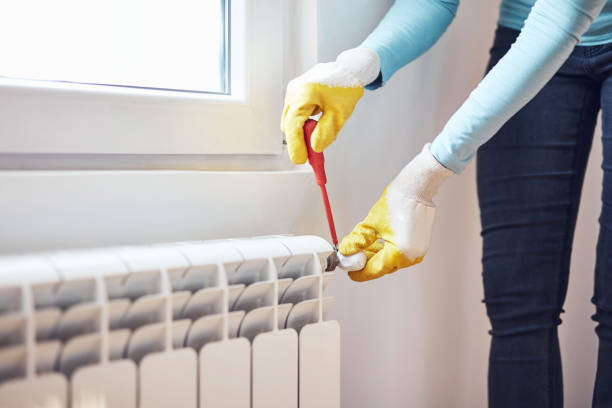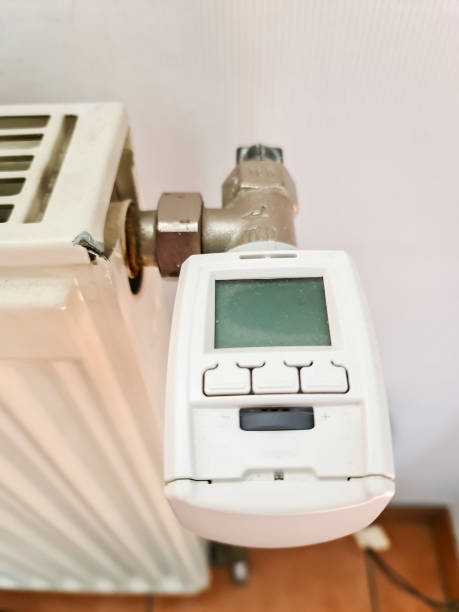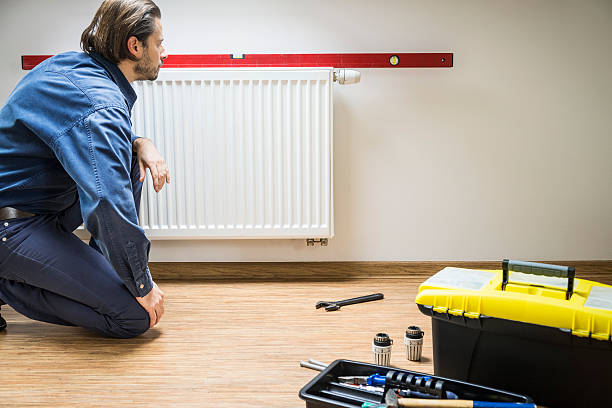Energy efficient radiators are a popular choice for homeowners looking to reduce their energy consumption and save money on their energy bills. They can help with significant savings on your energy bills over time.
In this article, we’ll take a deep dive into energy-efficient radiators, exploring factors such as price, cost to install, benefits, disadvantages, self-installation, professional installation, heat output, and changes to your energy bill.
Benefits of changing to energy efficient radiators
These radiators are designed to use less energy to produce the same amount of heat as traditional radiators. With a range of styles and materials to choose from, energy-efficient radiators can be a cost-effective investment in the long run, despite their higher upfront cost. They incorporate energy-saving features such as low-water content and better insulation.

What is an energy efficient radiator?
An energy-efficient radiator is designed to use less energy to produce the same amount of heat as a traditional radiator. These radiators are typically made with energy-saving features such as low-water content and better insulation, which help them use less energy to produce heat.
As a result, energy-efficient radiators can help reduce energy consumption and lower energy bills, making them a popular choice for homeowners looking to save money on their energy costs.
There are many different types of energy-efficient radiators available, including central heating radiators, column radiators, designer radiators, vertical radiators, towel radiators, and cast iron radiators. The specific features and benefits of each type of energy-efficient radiator will vary depending on the model and manufacturer.
First, let’s take a look at the cost of energy-efficient radiators. These radiators can be more expensive than traditional radiators, with prices ranging from £100 to £700 or more depending on the size and style of the radiator. However, it’s important to note that the initial cost of the radiator is just one factor to consider.
The cost of installing an energy-efficient radiator will also vary depending on a number of factors, including the size and complexity of the installation, the location of the radiator, and the availability of installers.

Benefits of energy efficient radiators
So, what are the benefits of energy-efficient radiators? Here are a few key benefits to consider:
Energy savings
The most obvious benefit of energy-efficient radiators is the potential to save money on your energy bills. By using less energy to produce the same amount of heat as traditional radiators, energy-efficient radiators can help you reduce your energy consumption and lower your monthly energy costs.
Increased comfort
Energy-efficient radiators are often better at evenly distributing heat throughout a room, which can help improve overall comfort levels. This is especially important in rooms with uneven heating, such as those with large windows or high ceilings, which can be difficult to warm up using traditional radiators.
Improved aesthetics
Depending on the style of energy-efficient radiator you choose, replacing old radiators with newer models can also help improve the overall aesthetic of your home. There are many different styles of energy-efficient radiators available, ranging from traditional cast iron models to modern, sleek designs.
Greater control
Many energy-efficient radiators come equipped with thermostatic controls, which allow you to fine-tune the temperature of each individual radiator and customize your home’s heating to your needs. This can be especially useful if you have different heating needs in different rooms of your home, or if you prefer to keep some rooms cooler than others.

Disadvantages of energy efficient radiators
Now, let’s take a look at some of the potential disadvantages of energy-efficient radiators:
Initial cost
As mentioned earlier, energy-efficient radiators can be more expensive than traditional radiators, which can be a disadvantage for homeowners on a tight budget.
Heat output
Some energy-efficient radiators may not produce as much heat as traditional radiators, which can be a disadvantage in very cold climates or for homeowners who prefer a warmer living environment.
Installing energy efficient radiators
So, should you install energy-efficient radiators yourself or hire a professional? The answer will depend on your skills and comfort level with home improvement projects. If you’re handy and confident in your ability to install a radiator, you may be able to save money by doing the installation yourself.
However, it’s important to keep in mind that working with plumbing and electrical systems can be complex and potentially dangerous if not done properly. If you’re not comfortable with the work, it’s generally best to hire a professional to avoid the risk of injury or damage to your home.

Before deciding to install energy-efficient radiators yourself, it’s a good idea to consider the potential risks and costs of mistakes or accidents. If you make a mistake while installing a radiator, it could result in costly repairs or even damage to your home.
Hiring a professional can help ensure the job is done correctly and safely, which can ultimately save you money in the long run.
Other considerations
In addition to the factors mentioned previously, there are a few other important factors to consider when evaluating energy-efficient radiators:
- Size: The size of the radiator will have a significant impact on its efficiency and performance. It’s important to choose a radiator that is appropriately sized for the room or area it will be used in. If the radiator is too small, it may not be able to produce enough heat to effectively warm the space. On the other hand, if the radiator is too large, it may be less efficient and use more energy than necessary.
- Insulation: Proper insulation in your home can significantly improve the efficiency of your heating system, including your radiators. If your home is poorly insulated, your radiators may have to work harder to produce the same amount of heat, which can reduce their efficiency and increase your energy consumption.
- Thermostat settings: The settings on your thermostat can also impact the efficiency of your radiators. If you set the thermostat too high, your radiators will have to work harder to maintain the desired temperature, which can reduce their efficiency. On the other hand, if you set the thermostat too low, you may not be able to adequately warm your home, which can result in increased energy consumption.
By choosing an energy-efficient radiator that is appropriately sized, located, and insulated, and by setting your thermostat correctly, you can help ensure that your radiators are as efficient as possible, which can help reduce your energy consumption and lower your energy bills.
